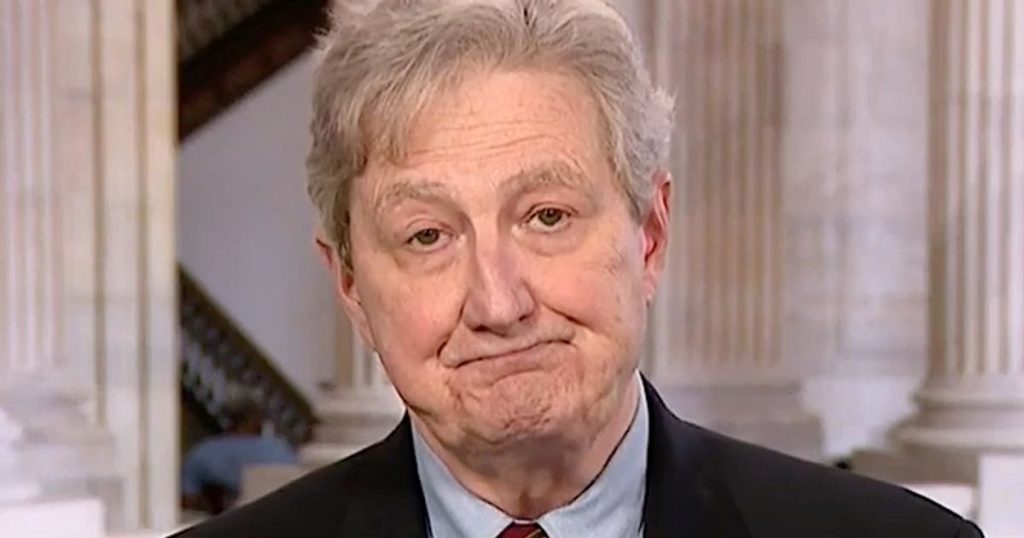Sen. John Kennedy (R-La.) appeared on Fox News and used demeaning language to attack Vice President Kamala Harris, calling her a “ding dong” multiple times. Host Neil Cavuto confronted Kennedy about his language, warning that it could backfire with voters, especially female voters. Kennedy insisted that polls show Americans think Harris is a “ding dong” and a “member of the loon wing.” When asked to provide evidence of these polls, Kennedy was unable to do so, and Cavuto continued to caution against personal attacks in politics.
Despite Cavuto’s warnings, Kennedy persisted in calling Harris a “ding dong,” claiming that his only concern is her competence. Cavuto challenged Kennedy on why he would use such language if only concerned about her competence, and suggested that name-calling may not be constructive in politics. Kennedy, however, continued to assert that the polls show Americans view Harris negatively. Cavuto questioned Kennedy’s objectivity and implied that his use of insults did not align with being truly objective in the conversation.
Kennedy defended his use of the term “ding dong” by stating that he was just relaying what he believed Americans think of Harris. He dismissed Cavuto’s concerns about the impact of personal attacks on voters and insisted that his only concern was Harris’ competence. Cavuto continued to push back against Kennedy’s language and behavior, emphasizing the importance of respectful dialogue in politics. Despite the tense exchange, Kennedy stood by his choice of language and refused to back down from his characterization of Harris.
Throughout the interview, Kennedy and Cavuto clashed over the appropriateness of using demeaning language in political discourse. Kennedy repeatedly referred to Harris as a “ding dong” and a “member of the loon wing,” while Cavuto challenged him on the lack of evidence to support these claims. The exchange highlighted the divide within the Republican Party on how to engage in political debates and the potential consequences of resorting to personal attacks. Kennedy’s remarks drew criticism for their disrespectful nature, raising questions about the role of civility in political discussions.
In the end, Cavuto wrapped up the interview by questioning Kennedy’s objectivity and his commitment to respectful dialogue. Despite Kennedy’s insistence on using derogatory language to describe Harris, Cavuto stood firm in his belief that name-calling is not productive in political conversations. The exchange underscored the challenges of maintaining respectful discourse in the current political climate and the importance of promoting civil engagement in public debates. Kennedy’s use of demeaning language towards Harris sparked controversy and debate, highlighting the need for politicians to prioritize respectful communication in their interactions with colleagues and opponents.


